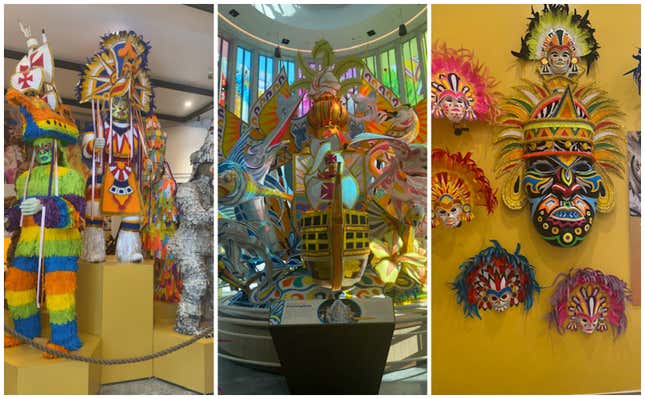
While the U.S. may just be getting over the joys of Christmas on Dec. 25th, for those living in the Bahamas, they’re gearing to celebrate one of the biggest holidays of the year: Junkanoo.
Taking place on Dec. 26 and New Year’s Day, the nationwide holiday was named after an African warrior Gyan Kwaw or as he was known back in the early 1700s, “John Canoe.” During that era, Kwaw waged war against European slave traders in West Africa. With his army of thousands, he took over a fort and fought against British and Dutch slavers for over five years seven years. Thanks to his efforts and heroism, he was able to unite freedom fighters from various West African tribes to combat the evils of the colonization and slavery.
While he was ultimately defeated after seven years, his defiance had made him a legend. And when those who fought with him were eventually enslaved and taken to the “New World”, they held on to their anti-slavery resistance and incorporated it into a colorful, mass festival called “John Canoe” a.k.a. “Junkanoo.”
Fast forward to now, the celebration is a time where thousands of Bahamians come together to celebrate the spirit of resilience, joy, creativity and beauty in their culture and country. Encompassing elaborate costumes that take months and months of preparation and involve everything from feathers to paper, wood, feathers, sequins and everything in between, the festival also showcases a parade in which the local folks compete to see whose costume outdoes the other.
In addition to festive clothing, the music that overtakes the celebration is just as diverse. Whether its the beating of the goatskin drum, the “ting” of a cow bell, or the urgent screech from a whistle—the music undergirding the special occasion is the perfect encapsulation of the spirit of the Bahamian people and the beauty of our interrelatedness.
But don’t worry—if you’re not Bahamian, you can still celebrate. Just come with an open heart, open spirit, and loose limbs because you’ll be dancing from sun up to sun down.

